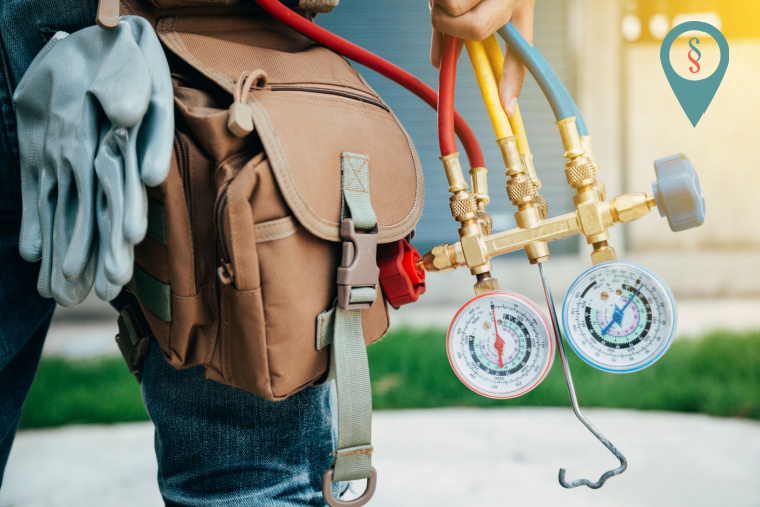Climate Control Chronicles: Mastering Your Heating and Air Conditioning Systems
Climate Control Chronicles: Mastering Your Heating and Air Conditioning Systems
Blog Article

In today's fast-paced world, maintaining a comfortable living environment is essential. Heating and air conditioning systems play a crucial role in regulating our indoor climate, ensuring that we stay warm in winter and cool during the sweltering summer months. With the ever-changing weather patterns and increasing energy costs, understanding how to effectively manage these systems is more important than ever.
As we delve into the intricacies of heating and air conditioning, we will explore various tips and strategies to optimize your home’s climate control. From routine maintenance to energy-efficient upgrades, mastering these elements can lead to significant savings and a more enjoyable living space. Join us on this journey to unlock the secrets of efficient temperature management, so you can create a haven of comfort no matter the season.
Understanding Heating Systems
Heating systems are essential for maintaining a comfortable indoor environment, especially during cold weather. There are several types of heating systems, including forced air, radiant, and boiler-based systems. Forced air heating is one of the most common methods, where a furnace heats air and distributes it through ducts and vents. Radiant heating systems, on the other hand, use heat transfer through floors, walls, or ceilings, providing even warmth without the need for ducts.
The efficiency and effectiveness of a heating system depend on various factors, including the energy source used, which can be electricity, gas, oil, or renewable energy sources. Each option has its own advantages and disadvantages, impacting both operational costs and environmental considerations. For example, gas furnaces are typically more cost-effective but may have higher emissions compared to electric heat pumps, which can be more energy-efficient and environmentally friendly.
Regular maintenance is crucial for keeping heating systems running smoothly. This includes tasks such as cleaning filters, checking ductwork for leaks, and inspecting the unit for any signs of wear and tear. A well-maintained system not only prolongs the lifespan of the equipment but also enhances energy efficiency, ultimately leading to lower utility bills and increased comfort in your home.
Exploring Air Conditioning Technologies
Air conditioning systems have evolved significantly over the years, incorporating new technologies that enhance efficiency and performance. Traditional central air conditioning units rely on a compressor to cool the air, but modern alternatives, such as ductless mini-splits and smart thermostats, are gaining popularity. Ductless systems provide flexibility, allowing users to cool individual rooms without the need for extensive ductwork. Smart thermostats offer users the ability to control their systems remotely, optimizing energy use and comfort levels in real time.
High-Quality HVAC Solutions for Homes
Energy efficiency has become a key focus in air conditioning technology. Many new systems come equipped with variable-speed compressors, which adjust the cooling output based on the ambient temperature. This not only leads to smoother temperature control but also reduces energy consumption compared to older fixed-speed models. Additionally, innovations like inverter technology help maintain a consistent indoor climate while minimizing energy waste, making modern air conditioning systems more eco-friendly.
The advent of environmentally friendly refrigerants also contributes to the advancement of air conditioning technologies. Traditional refrigerants have been shown to harm the ozone layer and contribute to global warming, prompting the industry to seek alternatives. Newer options, such as R-32 and R-454B, have lower global warming potentials and are more efficient in transferring heat. As consumers become more environmentally conscious, advancements in air conditioning technology will likely continue to focus on sustainability while providing effective cooling solutions.
Energy Efficiency and Maintenance Tips
To ensure your heating and air conditioning systems operate at peak efficiency, regularly changing or cleaning the air filters is crucial. Dirty filters restrict airflow, forcing your system to work harder and consume more energy. Check your filters monthly, especially during heavy usage seasons, and replace them every three months or as recommended by the manufacturer. This simple task can extend the life of your system and improve air quality in your home.
Another vital aspect of energy efficiency is scheduling routine maintenance with a qualified technician. Annual inspections can identify potential issues before they become major problems, ensuring your systems run smoothly and efficiently. During these checks, the technician can clean the coils, check refrigerant levels, and calibrate the thermostat, all of which help lower energy bills and increase comfort levels. Regular maintenance also keeps your warranty intact, providing peace of mind.
Finally, consider making use of programmable thermostats or smart thermostats that allow you to customize your heating and cooling schedules. These devices can optimize energy use by adjusting temperatures based on your daily routines. By setting your system to lower heating or cooling when you're away and return to a comfortable level before you arrive home, you can significantly reduce energy consumption without sacrificing comfort.
Report this page